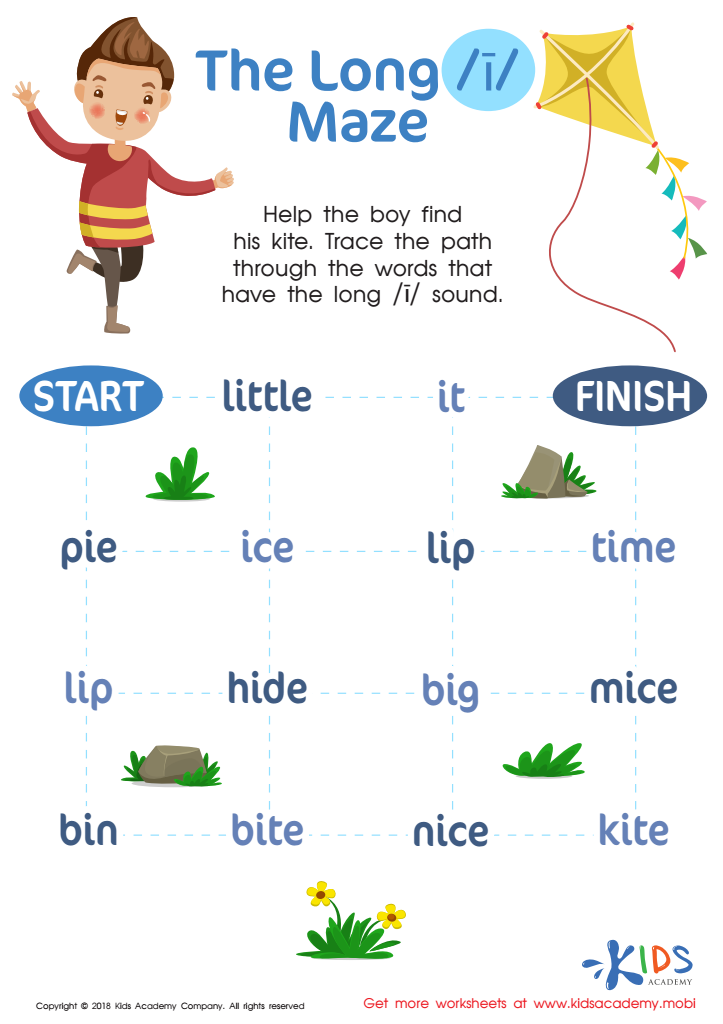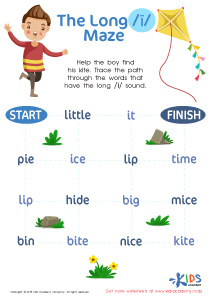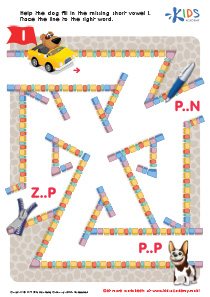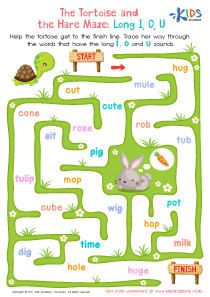Extra Challenge Long And Short Vowel Worksheets for 4-Year-Olds
1 filtered results
-
From - To
Introducing our Extra Challenge Long And Short Vowel worksheets, expertly designed for 4-Year-Olds ready to embark on a fun and engaging journey into the world of vowels. These innovative worksheets are tailored specifically to challenge and enhance your child's understanding of the intricate differences between long and short vowel sounds. Through a variety of interactive and enjoyable activities, your little one will not only master vowel sounds but also develop a strong foundation in phonics that will support their reading and writing skills. Perfect for at-home learning or as a supplement to classroom instruction, these worksheets are the ideal resource for your 4-year-old's educational adventure.


The Long I Maze Reading Worksheet
Extra Challenge Long And Short Vowel worksheets are an essential tool designed specifically for 4-Year-Olds to enhance their understanding of the English language. These worksheets are crafted with young learners in mind, providing the perfect blend of fun and education to engage children in the foundational aspects of reading and pronunciation. The primary benefit of incorporating these Extra Challenge worksheets into a 4-year-old's learning routine is the solid foundation they lay in distinguishing between long and short vowel sounds, which are crucial for reading proficiency and clear articulation.
For 4-Year-Olds, engaging with Extra Challenge Long And Short Vowel worksheets means embarking on a journey of discovery and learning. These worksheets are designed to capture their curiosity and hold their attention with colorful illustrations and interactive activities that make learning feel like play. As children explore these worksheets, they not only practice phonics skills but also enhance their listening skills, attention to detail, and ability to follow instructions.
Moreover, these Extra Challenge worksheets facilitate a positive learning experience by providing just the right level of challenge for 4-Year-Olds, thus ensuring that they are neither too easy to bore them nor too difficult to frustrate them. This balance is key in fostering a love for learning and building confidence in their abilities. As children master the differences between long and short vowels, they set the stage for improved reading fluency, better comprehension, and a smoother transition to more complex literacy skills in the future.
 Assign to My Students
Assign to My Students














